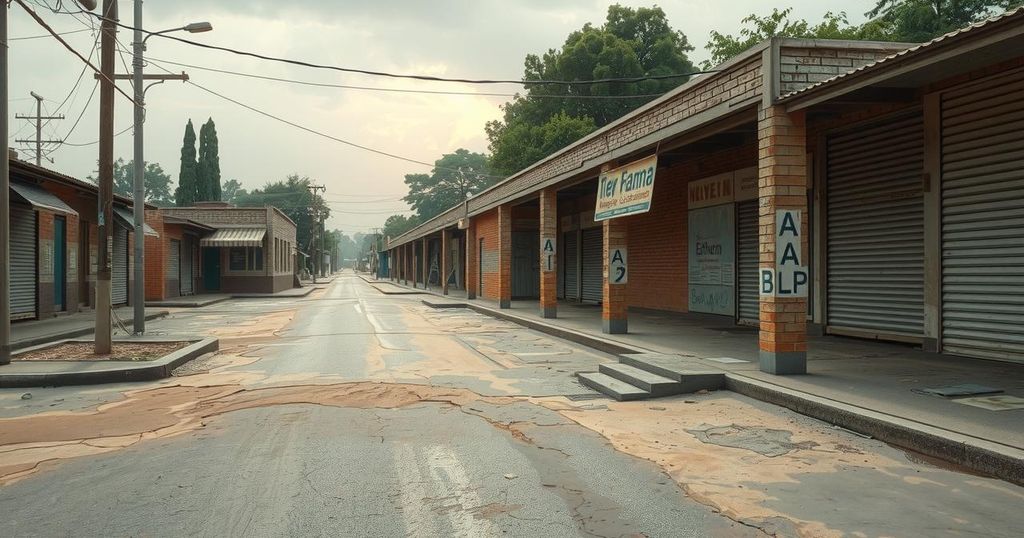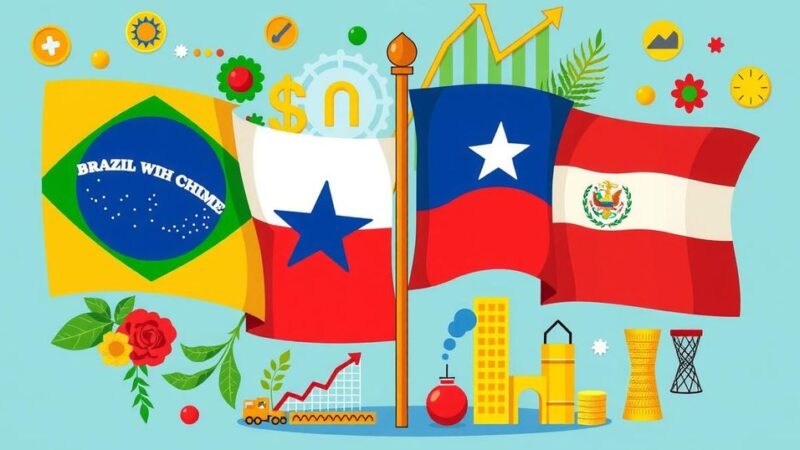A recent stay-away in Zimbabwe largely failed, as citizens prioritized safety and livelihood. Political analyst Eldred Masunungure highlighted the lack of cohesive organizational support for opposition movements. He calls for a revival, akin to the Government of National Unity, but remains doubtful in the current political climate dominated by Zanu PF. Zimbabwe faces ongoing uncertainty and challenges.
At the end of March 2025, Zimbabweans largely observed a stay away from work, leading to eerily empty urban areas. Political analyst Eldred Masunungure from the University of Zimbabwe commented on this social response. He noted that instead of taking to the streets as urged by war veteran Blessed ‘Bombshell’ Geza, citizens opted for a quieter protest by staying home, highlighting a rational avoidance of state violence.
Zimbabweans indeed clearly exhibited a level of caution. In Masunungure’s view, while the call for an indefinite stay-away was ignored, it was understandable—many felt it was simply ill-timed with their daily survival needs, primarily through informal trading and vending. Participating in such actions could be detrimental to their livelihoods, as he stated, “It is plain common sense.”
The political landscape, according to Masunungure, is increasingly fragmented. He pointed out that there is no cohesive organizational movement backing Geza’s initiative, which raises concerns about the longevity of his efforts. His movement lacks sustainability, being primarily reliant on Geza alone. Moreover, the political environment is starkly dominated by the ruling Zanu PF party, leaving a void for those who may seek alternatives.
A striking observation was that many political orphans exist due to the decline of opposition parties like the Movement for Democratic Change (MDC) and the Citizens Coalition for Change (CCC). Masunungure deemed this absence of a solid political structure as a tragedy. The way forward, he argues, is through the establishment of a sustainable political organization with competent leadership.
For over twenty-five years, Zimbabwe has faced what Masunungure describes as crippling fragility—across its political, social, and economic spheres. The situation is worsened by rampant corruption, severe unemployment, and high inflation, creating a landscape of uncertainty. He described the predicament as one where even the highest officials appear unclear about the nation’s direction.
Masunungure suggested a revival reminiscent of the 2009-2013 Government of National Unity (GNU) as a potential remedy for the country’s afflictions. Nevertheless, he remains skeptical given the current political climate, which he perceives to be monopolized and oppressive towards dissenting civil society organizations.
In seeking solutions, he expressed hope that progressive elements within the church could spearhead efforts for national dialogue, possibly paving the way for a GNU-like structure. However, he also acknowledged that this endeavor would require significant engagement from regional leaders, particularly within the Southern African Development Community (SADC). Ultimately, Masunungure predicts a prolonged period of turbulence and confusion for Zimbabwe, underscoring the deep-rooted challenges it faces.
In summary, the recent call for a stay away in Zimbabwe did not gain traction largely due to citizens’ rational prioritization of safety and daily survival needs. Political analyst Eldred Masunungure emphasized the absence of a stable organizational vehicle to unify opposition efforts against the long-dominant Zanu PF party. He underscored the need for a cohesive political structure, while expressing skepticism about the potential for change without significant support from regional actors. As economic and social challenges persist, the future of Zimbabwe remains uncertain.
Original Source: www.newzimbabwe.com






